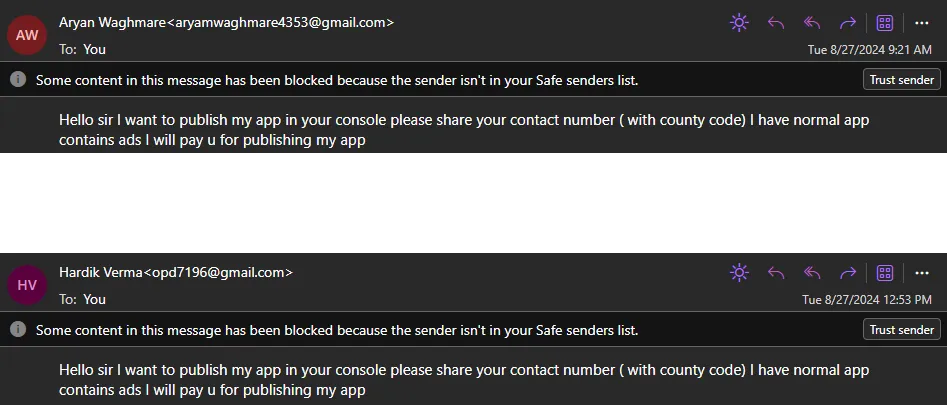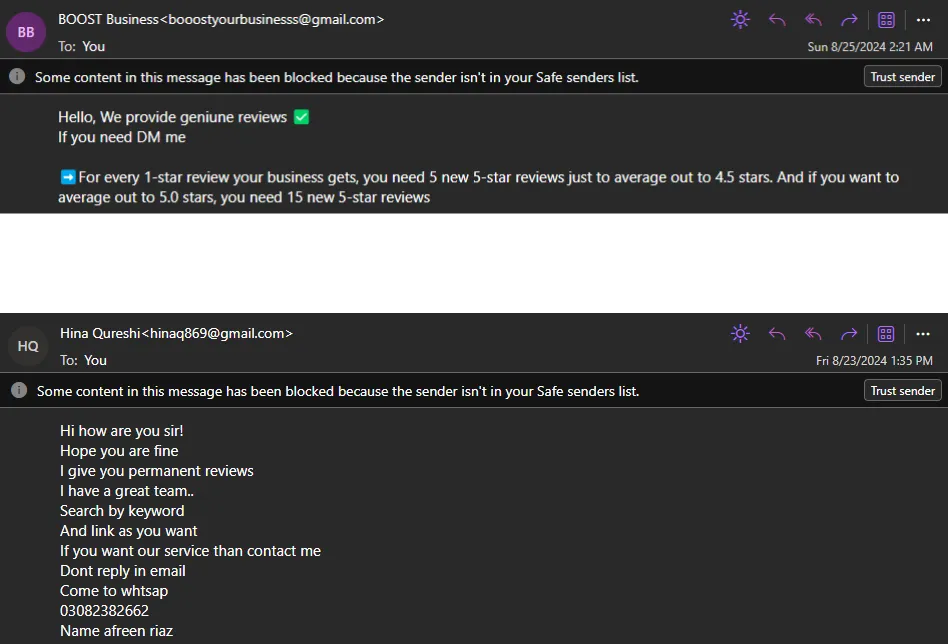Releasing an App on the Play Store
The pains of trying to release an app on the Play Store as a new developer.
August 29, 2024
When creating Music, one of the goals I had was to get the app on the Play Store. While doing research on how I could release my app on the Play Store, I encountered a couple of concerns.
Concerns
During my research back in March, I encountered this Reddit post which really rang some alarm bells as I really don’t want to let the internet know where I live. With that in mind, I held off from creating a Google Play Console account due to these fears.
Fast forward about 2 months in May, where I dug further in research, I found out that in fact my phone number and address only gets displayed if I monetize my app (ie: ads or purchases), in which I have no plans to do so. So this cleared most of my worries. Though, I do now need to keep in mind that I should never publish a monetized app on this account as that would result in those details being displayed.
This probably could have been avoided if there wasn’t any miscommunication and misinformation about this change.
New Developer Requirements
After providing Google with my information and $25, we can now create an app. Once we create the app, we’re greeted with a bunch of checklists that we need to complete (ie: filling out information about the app) before we can release the app. One of those checklists in particular requires a 14-day closed test.
Late last year, Google made the change that requires new developers to test their app with users before the app can be published. More specifically, you needed at least 20 users testing your app over the course of 14 days. For a company, that’s pretty easy. For hobbyists, this is a pain.
I initially created a post on Reddit, attempting to gather users, with little success. I had better luck with creating a post on the Nothing Community forums after a week of no responses from the Reddit post. Although I got around 48 responses, only 20 of those submissions resulted in testers due to them completing the final steps (by looking at their emails and clicking a link).
After that, it was pretty smooth sailing.
Publishing
After finishing the 20 day closed test, you can now send the app to Google for review to be visible to everyone on the Play Store. Before you can do that however, you need to give your app a description along with some graphics (ie: screenshots of what your app offers). One thing you need to keep in mind is that you need to not display anything that may have an associated copyright. For a music app, that’s particularly important as all aspects of a music track (artist name, album name, cover) are copyright material. To get around this while presenting the features of our app, those values need to be replaced with placeholder values. Although it may not look as nice, it’s a necessary step to prevent your app from potentially being kicked from the Play Store.
Results of Publishing
After getting my app on the Play Store, I kind of now understand why Google created these new requirements. From August 23-27, I got a couple of suspicious emails sent to Junk by Outlook:
I’m guessing the first set of emails came from banned developers as if they’re willing to pay me to publish their app, why don’t they make their own accounts? In addition, there’s a couple reasons on why accepting this offer doesn’t make any sense:
- My account was made after Google implemented the changes, so this app would have to go through a closed test, in which I’m not spending the time to find testers for it.
- Even if we finish the closed test, Google will probably reject the app in the review process.
- Publishing their apps will also cause my phone number & address to be revealed since their apps are monetized, which is bad.
- If the app gets into any legal troubles, it’s on me and that might cause my account to get banned.
So in the end, it seems Google’s efforts are doing something right in that regard.
The second set of emails offers the prospect of fake reviews for my app, in which I don’t care at all. I see the Play Store as another means of distributing my app. There’s no incentive to boost my app rating. If they retaliate by review bombing with negative reviews, so be it — it just wastes their time and resources.
Conclusion
Overall, I feel the new process of releasing an app on the Play Store is pretty anti-hobbyist as it makes it even more difficult to release apps on the Play Store and the fact it does reveal some of our personal information (ie: our legal name). However, I do understand the reasons for these changes due to the suspicious spam emails that I’ve been receiving after releasing my app.

